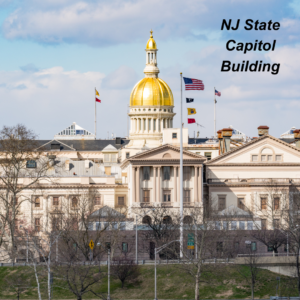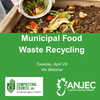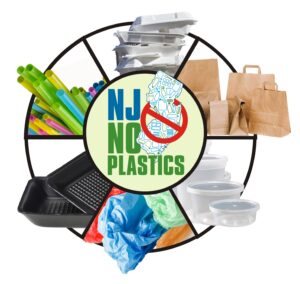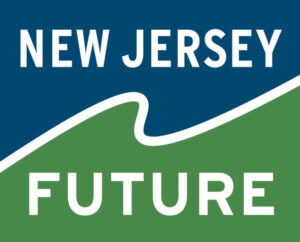Speak Out for the Environment!
 ANJEC and New Jersey need your help fighting a science disinformation campaign designed to stop the adoption of climate regulations in New Jesey that will save lives.
ANJEC and New Jersey need your help fighting a science disinformation campaign designed to stop the adoption of climate regulations in New Jesey that will save lives.
We need everyone across the State to keep their eyes open for a municipal resolution that is factually wrong and being peddled by those who would make profit from killing these climate regulations, and we need you to please ask your municipal officials to vote NO.
Here are two actions we are asking of you this summer:
1. Oppose the Climate Disinformation Resolution: You’ll know it’s disinformation if it says something such as “NJPACT relies on a sea level rise study with only a 17% likelihood 75 years from now” or it will “cost too much” This is factually incorrect. NJPACT REAL is based on data that tells us that there is an 83% likelihood that New Jersey will experience AT LEAST five feet of sea level rise by the year 2100. It costs too much for us to do nothing. “From 1980–2024 (as of September 10, 2024), there have been 72 confirmed weather/climate disaster events with losses exceeding $1 billion each to affect New Jersey.” (National Center for Environmental Information)
Email us at info@anjec.org if you see a resolution like this making the rounds in your municipality, and we’ll work together to get the NJPACT REAL facts into the hands of municipal officials.
2. Pass a Resolution in support of NJPACT REAL: Have your E pass a resolution in support of NJPACT REAL and ask your municipal governing body to do the same. A sample resolution can be found here.
If you or your municipal officials want to do more, reach out to Governor Murphy directly and ask him to “Adopt the NJPACT REAL rules as proposed.” https://nj.gov/governor/contact/all/
The Truth and Urgency of NJPACT REAL
WHAT: The New Jersey Protecting Against Climate Threat Resilient Environment and Landscape (NJPACT REAL) rules are science-based common sense regulations based on moderate greenhouse gas emissions scenarios (which are reductions below current emissions) and the impacts on global systems such as arctic ice melt and collapsing Gulf Stream. Scientists at Rutgers University have used that data to model the impact on New Jersey with a high degree of confidence. Scientists agree that there is an 83% chance that New Jersey will experience AT LEAST five feet of sea level rise by 2100.
WHERE: The NJPACT REAL rules will protect lives and property in tidally influenced areas by requiring that NEW (not existing) development and redevelopment be constructed above the five feet sea level rise increase. Inland areas, aka non-tidally influence freshwater areas of New Jersey, are protected by the NJPACT rules adopted in 2023. People and businesses that live in coastal areas deserve the same protection for their families and their property.
WHEN: The NJPACT REAL rules were proposed and opened to public comment on August 5, 2024. The rules have gone through years of stakeholder input with more than 20 meetings of businesses, non-profits, scientists, community members, and more providing input. The rules have been through extensive scientific and legal review. Public comment is now closed. Governor Murphy has until August 4, 2025 to adopt NJPACT REAL or the rule proposal expires.
HOW: You can find out more at:
Op/Ed by Jennifer Coffey, ANJEC Executive Director: https://www.nj.com/opinion/2025/05/the-outrageous-ignorance-of-njs-climate-skeptic-lawmakers-puts-us-at-risk-opinion.html
NJDEP short videos on the TRUTH about REAL and fact v. fiction: https://dep.nj.gov/njreal/
NJDEP webinars: https://dep.nj.gov/njreal/webinars/
 We encourage you to speak out for NJ’s Environment by contacting your elected representatives in the New Jersey Assembly and Senate on pertinent bills.
We encourage you to speak out for NJ’s Environment by contacting your elected representatives in the New Jersey Assembly and Senate on pertinent bills.
Find the NJ legislators that represent your town
- Interactive map of legislative districts
- Numerical listing of legislative districts
- Search legislative bills by number, sponsor, subject or keywords

May 1, 2025- Urgent: Action Needed for Climate Rules
Dear Friends,
As we closed out Earth Month, the Trump Administration is pledging to stop New Jersey from adopting climate change regulations.
Congressman VanDrew has asked, and the Trump Administration agreed, to interfere with New Jersey’s right and responsibility to protect the livelihood and very lives of residents from the escalating flood impacts of climate change.
The regulations were proposed in August 2024 and are ready to be adopted now.
We need you to ask Governor Murphy to adopt them immediately.
Please take action, sign the petition:
https://thewatershed.org/tell-governor-murphy-to-stay-the-course/
The rules will expire soon and the opportunity to protect generations of New Jerseyans will be lost without your action.
The controversy is about a set of proposed regulations named NJPACT REAL – New Jersey Protecting Against Climate Threats, Resilient Environments and Landscapes. The NJPACT REAL regulations simply require new development and redevelopment standards to prepare for the flooding that is happening currently and that we know will continue. The NJPACT Real rules will require that new development be elevated above the areas that will flood.
The NJPACT REAL rules take a commonsense approach to flooding by requiring stormwater management for redevelopment projects (for the first time in our 350 year history), preference for nature-based infrastructure solutions, and better protection for wetland buffers. These rules are designed to keep people from drowning to death in their homes just as 25 New Jerseyans died in Hurricane Ida.
The truth of the matter is: NJ experiences a one billion dollar weather event on average every 32 weeks. From 1980–2024 (as of September 2024), there have been 72 confirmed weather/climate disaster events with losses exceeding one billion dollars in damages each to affect New Jersey communities. (National Center for Environmental Information).
The NJPACT REAL rules are based on sea level rise that is moderate, planning for five feet of increased flooding, rather than “extreme” as VanDrew claims. The extreme scenario for climate flooding impacts in New Jersey predicts nine feet of sea level rise.
Now is the time to activate our resistance to the anti-science agenda. Governor Murphy needs to stand up and fight back. Governor Murphy – New Jersey needs the NJPACT REAL rules to save lives.
We need the NJPACT REAL rules so we can be both Jersey strong and Jersey smart.
Take Action Now, sign the petition:
https://thewatershed.org/tell-governor-murphy-to-stay-the-course/
We’ll keep fighting for these rules because we know how important they are for you and for all of New Jersey.
Most sincerely,
Jennifer M. Coffey
Executive Director, ANJEC
FOOD WASTE REDUCTION ACTION NEEDED
 Does your Environmental Commission support municipal food waste/compost recycling programs? Your EC can help by urging your municipality to pass a resolution to have the NJ State Legislature pass and enact two legislative bills: (S2426/A2090) which calls for county-level food waste reduction planning and tiered permitting for composting operations; and (S1040/A2102) which allows for on-site composting in community gardens without excessive regulatory barriers.
Does your Environmental Commission support municipal food waste/compost recycling programs? Your EC can help by urging your municipality to pass a resolution to have the NJ State Legislature pass and enact two legislative bills: (S2426/A2090) which calls for county-level food waste reduction planning and tiered permitting for composting operations; and (S1040/A2102) which allows for on-site composting in community gardens without excessive regulatory barriers.
A model resolution can be found HERE.
Help Reduce Plastic Pollution
Support the Packaging Product Stewardship Act and pass Skip The Stuff laws.
See our list of model ordinances here
Have your municipality pass a resolution to support the Packaging Produce Stewardship Act –
Sample Resolution
Shape Your Future Have a Voice in NJ’s State Plan
In December, with strong support from Governor Phil Murphy, the State Planning Commission unveiled the long-anticipated preliminary update to the New Jersey State Development and Redevelopment Plan (State Plan). The updated State Plan provides a roadmap to address critical challenges, including climate change, equity, housing affordability, infrastructure modernization, and economic development. Developed by numerous stakeholders, the Plan allows for smoother coordination and planning among state agencies and different levels of government.
New Jersey Future (NJF) has been a key advocate for the State Plan since our founding in 1987, championing smart growth policies to improve communities and safeguard natural resources. NJF remains committed to helping advance the State Plan and ensuring its success across the Garden State, but we can’t do it alone.
You can help make the State Plan update a success by providing feedback on the draft Plan, via email at stateplan.comments@sos.nj.gov or in person, at one of a series of upcoming public meetings, one in each of New Jersey’s 21 counties.
The upcoming county public meetings mark an important next step in the adoption process. These gatherings offer an opportunity for residents, community leaders, and government officials to learn about the Plan, understand how the cross-acceptance process works, and share their input. See State Planning Commission Public Meeting Schedule (February 2025 – April 2025)
- Camden, March 4
- Hunterdon, March 6
- Burlington, March 11
- Atlantic, March 13
- Gloucester, March 25
- Cape May, March 26
- Sussex, March 28
- Monmouth, March 31
- Bergen, April 1
- Hudson, April 9
The Office of Planning Advocacy will update the schedule of public meetings as additional meetings are finalized. Check the Update to State Development and Redevelopment Plan page about the 2025 County Public Meeting schedule for meeting times and locations.



